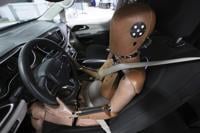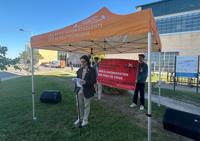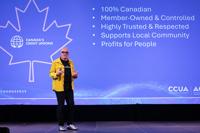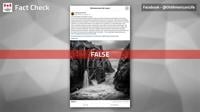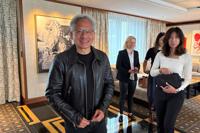TORONTO - A former Bank of Canada governor says the tariffs being imposed by the U.S. will be the ŌĆ£greatest intentional destruction of income ever.ŌĆØ
Stephen Poloz estimates that if U.S. tariffs land somewhere in the vicinity of 10 per cent, they would reduce global income by close to or around two percentage points.
While that might not sound like a lot, he said Thursday that it would equate to $2 trillion in income this year alone and $40 trillion over the next 10 years.
The impacts of the imposing tariffs is "a lot like throwing sand into the gas tank of a finely-tuned Camaro," said Poloz who reminded the crowd that his arithmetic assumes no retaliatory measures from other countries.
ŌĆ£Like in any war, if you retaliate, you can easily double your losses.ŌĆØ
Poloz's remarks opened an artificial intelligence symposium in Toronto organized by the Ivey Business School at Western University.
The symposium comes in the latter half of a year where trade tensions have dominated the worlds of economics and politics, weighing on business decisions, international relationships and consumer spending.
The trends have some people discussing the possibility of a recession and others predicting an irrevocable change in the world order.
ŌĆ£It's tempting to blame that seismic throughline on one individual, but I believe that the root cause is actually the economic, political,ŌĆØ Poloz said, alluding to U.S. President Donald Trump. ŌĆ£We shouldn't forget that history often repeats itself, or at least it rhymes, and that actually, you've been here before.ŌĆØ
Poloz's understanding of the cyclical nature of economics and politics informs his views as the world is enters the fourth Industrial Revolution, which is being spurred by the digitalization of every aspect of our lives and the increasing integration of artificial intelligence.┬Ā
The first revolution came in the 1800s with the introduction of steam engines and was followed by another in the early 1900s, when electricity emerged. A third revolution triggered by the personal computer began in the 1980s and lasted to the 2010s.┬Ā
"Each of these episodes was associated with major stock market crashes. Each was associated with major economic cataclysms, major points of disruption," Poloz said.┬Ā
"Each industrial revolution also spawned an era of rising income disparity because people were displaced by new technology."┬Ā
The revolutions formed a K-shaped economy, where some portions of the population and economy rebound quicker than others.
This creates a divergence that grows over time and according to Poloz, leads to rising political polarization, trade protectionism, nationalism, isolationism, and often, opportunism or war.┬Ā
ŌĆ£I believe we need to assume we are in for more of the same, emphasis on more," he said.
"If anything, Trump is just accelerating trends that were already in vogue."
When tariff threats from the U.S. first emerged, Poloz and other economists hoped "damage would show up fast and cause them to change their minds," but now they've seen Trump's tactic is to blame the country's central bank, the Federal Reserve.
"We have to accept the cards we have been dealt and seek a new path forward," Poloz said.
He believes that path should include reducing interprovincial trade barriers and embrace AI and the fourth industrial revolution.
Earlier this year, the federal Liberal governments started tackling legislation aimed at cutting down barriers. By June, it estimated that it removed almost 70 per cent of the exceptions it has imposed on the ┤║╔½ų▒▓ź Free Trade Agreement.
This report by ┤║╔½ų▒▓źwas first published Sept. 18, 2025.










